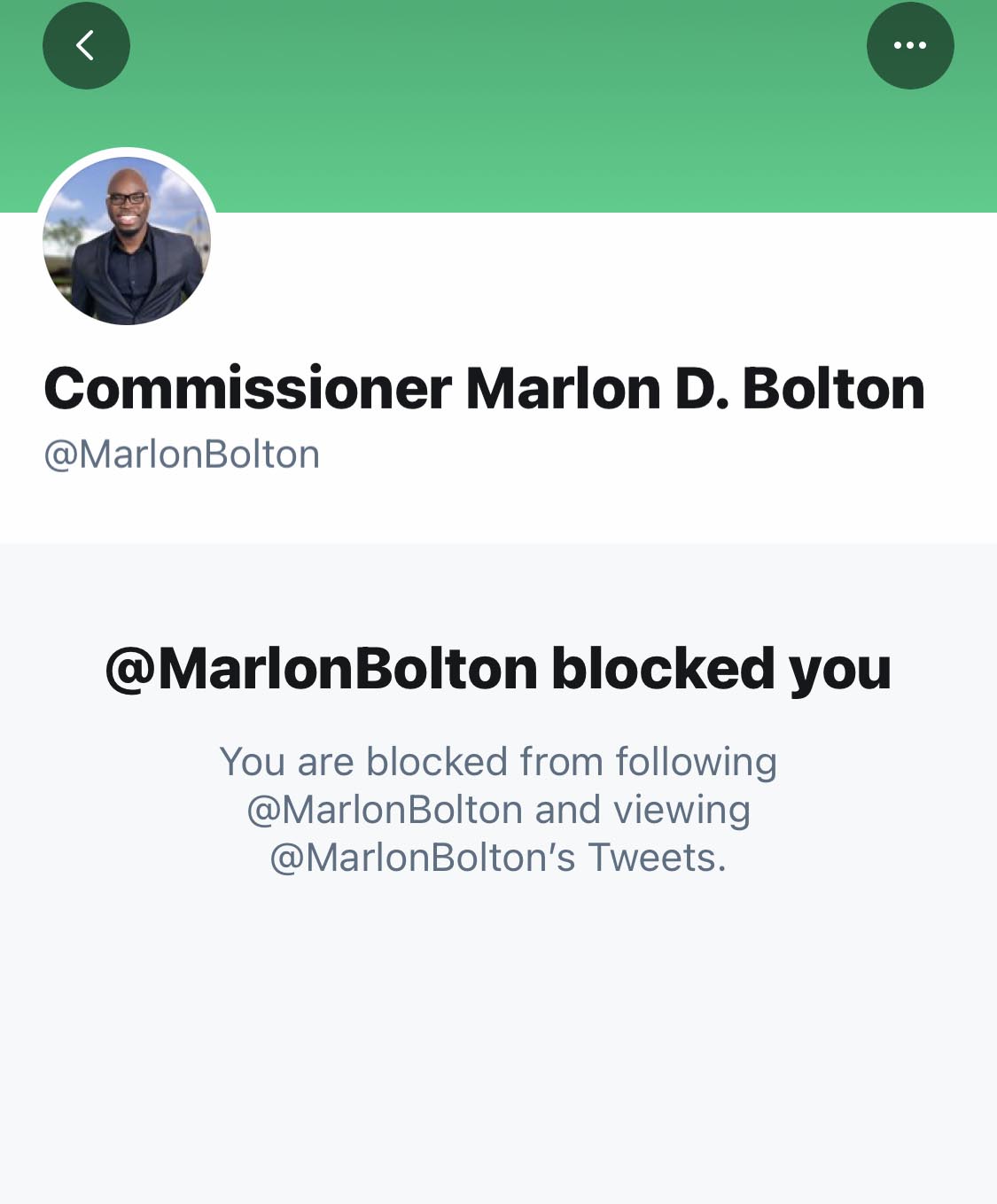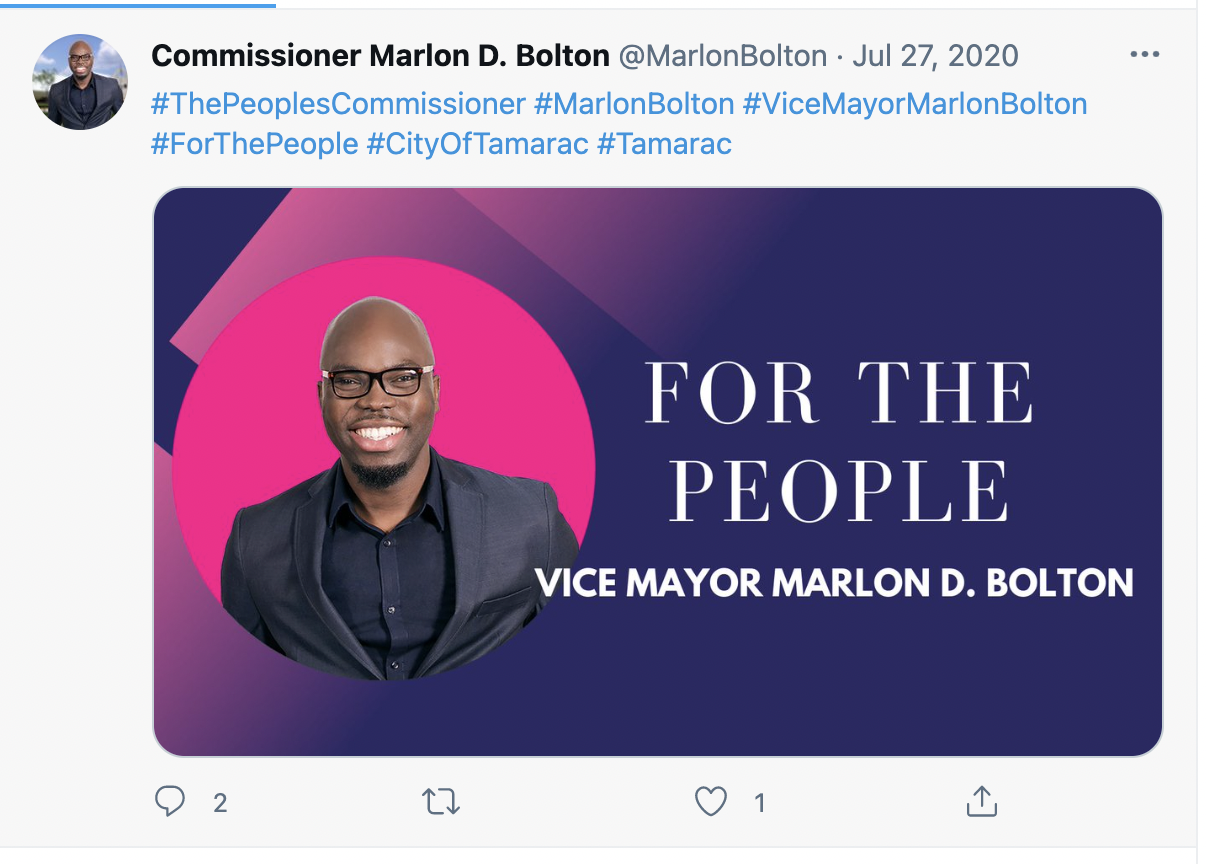
Tamarac Commissioner Marlon Bolton
By Sharon Aron Baron
When one takes a position as an elected official, one understands that criticism sometimes comes with it.
Sadly, it’s all part of the job.
When an elected official goes as far as blocking their detractors on social media, they violate the First Amendment.
In 2019, the Fourth Circuit Court of Appeals ruled that the interactive portion of a public official’s Facebook page is a “public forum,” so an official cannot block people from it because of their opinions.
Doing so is unconstitutional.
Commissioner Marlon Bolton blocked Tamarac Talk after exposing his questionable political consulting company, phony website, and arrest on grand theft charges.
Bolton routinely uses his Twitter account for personal and government business. According to the ACLU, people who hold public office can act as private individuals and, at other times, government actors. While Bolton may maintain his First Amendment rights when acting as a private individual, he is subject to the limits the First Amendment places on the government whenever they’re doing government work.

In 2020, former President Trump asked the Supreme Court to restore his power to block individual Americans from following his Twitter account, an act that lower courts found violated citizens’ First Amendment rights. In January, Lauren Boebert, a Republican congresswoman from Colorado, was sued in federal court for blocking a constituent on Twitter.

Commissioner Bolton routinely uses his Twitter account as a government official. In 2019, the Fourth Circuit Court of Appeals ruled that an official cannot block people from their social media pages because of their opinions.
The fact that a public official disagrees with you on an issue doesn’t mean they can silence you, and the Supreme Court made no exceptions.
UNITED STATES COURT OF APPEALS FOR THE FOURTH CIRCUIT
Got News? Send it to Tamarac Talk.
Author Profile

Latest entries
 DiningDecember 27, 2024Cold Stone Creamery “Scoops” Up a New Location in Tamarac
DiningDecember 27, 2024Cold Stone Creamery “Scoops” Up a New Location in Tamarac Crime & SafetyDecember 26, 2024Tamarac Crime Update: Arrests, Thefts, and Fraud Cases Highlight Weekly Blotter
Crime & SafetyDecember 26, 2024Tamarac Crime Update: Arrests, Thefts, and Fraud Cases Highlight Weekly Blotter EventsDecember 24, 20242025 Graduation Dates Announced for Broward County Public Schools
EventsDecember 24, 20242025 Graduation Dates Announced for Broward County Public Schools EventsDecember 24, 2024School Board Approves 2025/26 Calendar
EventsDecember 24, 2024School Board Approves 2025/26 Calendar






